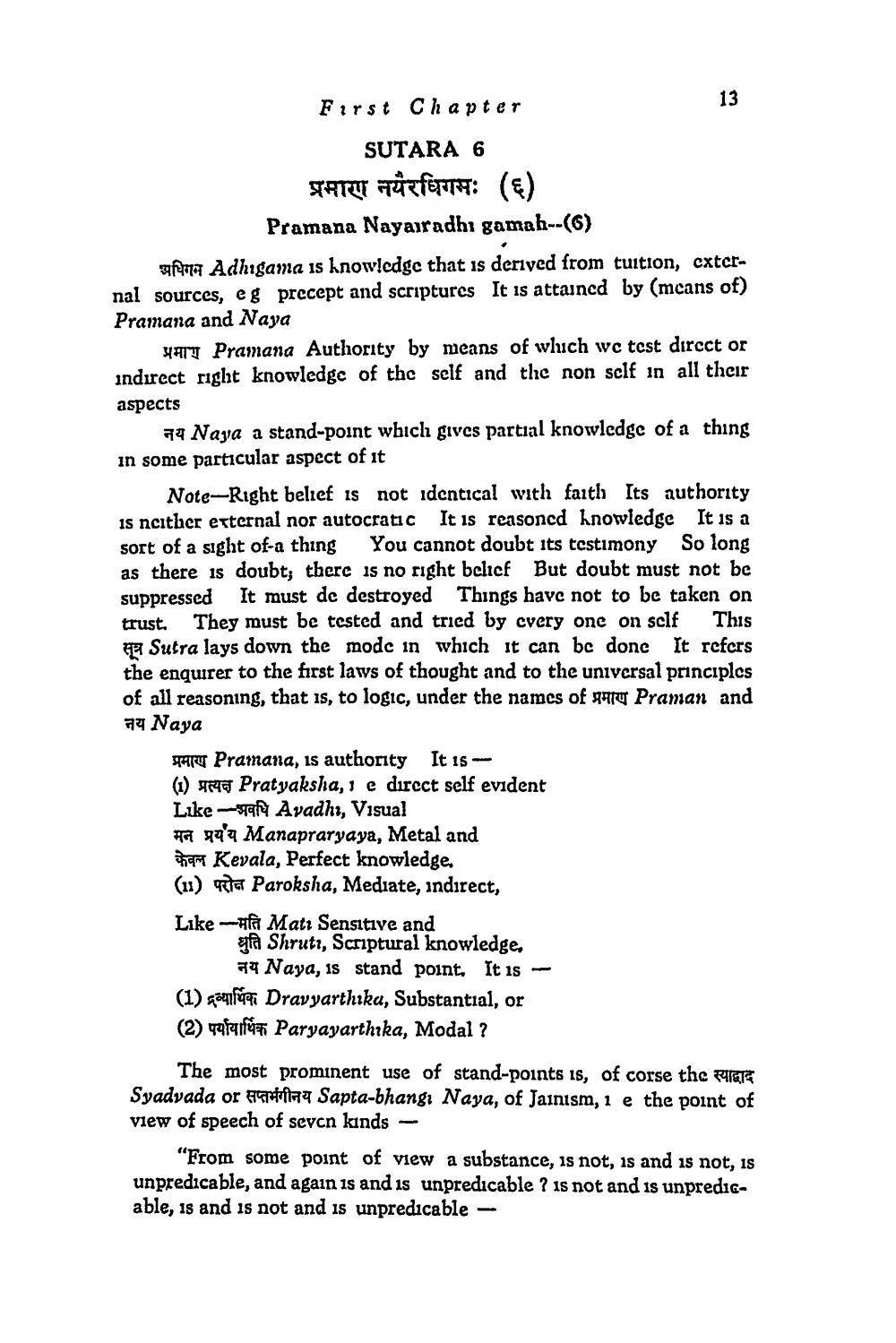________________
First Chapter
13 SUTARA 6 FATTI FRůzférora: ()
Pramana Nayaradhı gamah--(6) ma Adhigama is knowledge that is deriyed from tuition, cxtcrnal sources, eg precept and scriptures It is attained by (mcans of) Pramana and Naya
FALT Pramana Authority by means of which wc test direct or indirect right knowledge of the self and the non scif in all their aspects
79 Naya a stand-point which gives partial knowledge of a thing in some particular aspect of it
Note-Right belief is not identical with faith Its authority is neither external nor autocratic It is reasoned knowledge It is a sort of a sight of-a thing You cannot doubt its testimony So long as there is doubt; there is no right belich But doubt must not be suppressed It must de destroyed Things have not to be taken on trust. They must be tested and tried by cvery one on scif This FE Sutra lays down the mode in which it can bc donc It refers the enquirer to the first laws of thought and to the universal principles of all reasoning, that is, to logic, under the names of A Praman and नय Naya
sary Pramana, is authority It 15 - (1) 499 Pratyaksha, i e direct self evident Like-911 Avadh, Visual Fat ga'Manapraryaya, Metal and Ham Kevala, Perfect knowledge. (11) a Paroksha, Mediate, indirect,
Like -- Matt Sensitive and
ata Shruti, Scriptural knowledge,
79 Naya, is stand point. It is (1) ganari Dravyarthrika, Substantial, or (2) gafarfezi Paryayarthrka, Modal ?
The most prominent use of stand-points is, of corse the FIER Syadvada or Artistae Sapta-bhangi Naya, of Jainism, 1 e the point of view of speech of seven kinds -
"From some point of view a substance, is not, is and is not, is unpredicable, and again is and is unpredicable ? is not and is unpredice able, is and is not and is unpredicable -




